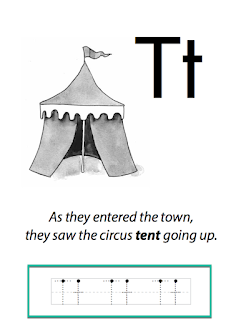The three month summer vacation is great time for kids and a disaster for academic achievement.
Educational research has not discovered any benefits to the embedded practice of interrupting their educational learning progress for three months during each summer.
The opposite has been well documented, the three month summer disengagement with the learning process has been shown to contribute to an accumulated learning deficit among all students.
Academic school standards and expectations have become more challenging and students can easily fall behind in foundational skills such as reading, writing and math.
For students in the grades Kindergarten through 6th grade, here are some ways parents can minimize the loss in literacy skills during the summer.
1. Incorporate reading and comprehension skills into everyday conversation. This may sound simple, but the literacy expectations for students entering the 1st, 2nd and 3rd grade are considerable. Students entering 1st grade are expected to be able to read words, typically single syllable words. Students entering 2nd grade are expected to be able to read multi-syllable words as well as compound words, phrases and complete sentences.
After watching a movie or reading a book, following are some suggestions for you to strengthen your child’s comprehension:
- Characters: Who are the main characters in the story?
- Main idea: Tell me what the story was about?
- Retell the Sequence: What happened first, second, next …?
- Setting: Where and when did the story take place?
- Was this a true story or fiction?
- Opinion: Do you agree with the outcome of the story and why could have been different?
Listen to an overview of the Summer Camp Program
Students will gain the insight that many larger words are simply the combination of two smaller words. Examples of compound words are:
-backpack, baseball, birthday, cupcake, chopstick, sunshine, waterfall.
3. Explore the world of prefixes and suffixes. The role of prefixes and suffixes in the English language is remarkable. Once students understand part of the word, they can easily learn new words that contain a prefix or a suffix. Examples are:
pre-heat, im-possible, dis-engage, by-pass, up-load, color-ful, kind-ness, enjoy-ment.
4. Learning to spell correctly is an essential literacy skill. Spelling is critical in creating
the mental association of reading of the word to writing the word and using it
in a sentence. As your child learns to read words, efforts to incorporate the spelling of the word will pay dividends when the time comes to learn writing.
5. Build confidence in the literacy foundation skills. There are many logical and intuitive approaches to learning to read. One approach to building a logical skills set is the following:
• learn to decode speak the phonetic sounds and read the word
• learn the meaning of the word both as a stand-alone word and in the context of a phrase or a sentence
• learn how to spell the word, practice printing the word
• practice writing a phrase or sentence using the word correctly
As a parent concerned about the loss of acquired skills from the end of the school year, you can incorporate some of the above activities as a road map to maintain or improve academic skills. We have seen the effectiveness of these activities which serve to improve literacy skills, build confidence and increase enjoyment in reading, as well as contribute to success in the classroom.
For more information on the First Focus summer campswww.firstfocus.com/camps.html in reading, writing and math.







